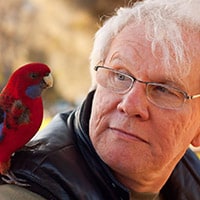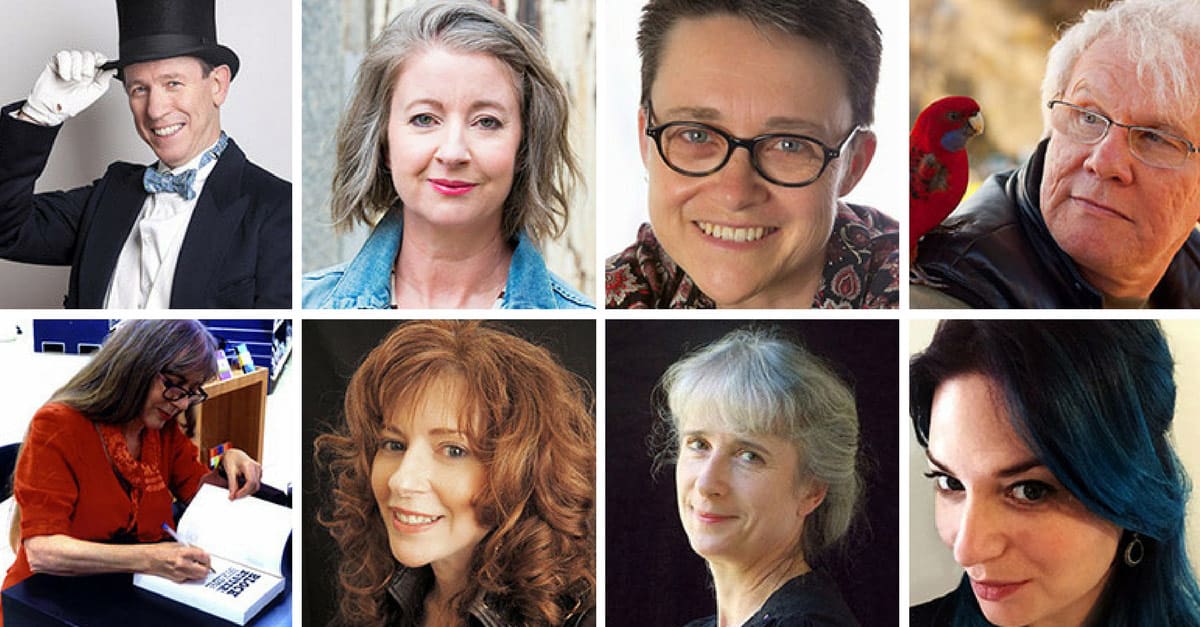With the recently released And Then… anthology chock full of amazing Aussie authors, I couldn’t resist drawing on their collective writing knowledge. I asked them for their best short story tips and they delivered!
 Alison Goodman
Alison Goodman
Take a close look at your first two or three paragraphs. Are they the best place to start the story or is the real start a little later? Often the first few paragraphs are a warm-up for the author and can be deleted for a much punchier beginning.
Jason Nahrung
The beauty of the longer reader, getting up into the novella range as opposed to the short story, is the extra room. While a short needs to be to economical and to the point, a real hard worker at a line level, with the longer reader such as those in And Then we can bring in extra elements (without waffling!) — such as a little extra decoration in the world building that enhances the atmosphere, or a little bit of noise to enhance the feeling of a bigger world outside the story, or an aside that builds character but perhaps doesn’t advance the narrative. Even a subplot!
 Michael Pryor
Michael Pryor
When writing a short story, think in terms of limits – location, duration or characters. Don’t plan to skip across dozens of worldwide settings, or to tell a story that goes over multiple years, or has a cast of hundreds of characters. If you do, you’ll tend to skim, to be superficial in many ways.
Lucy Sussex
Always know the ending, because if you don’t, you’ll wander around in circles trying to find it, leaving a snailtrail of words.
 Jack Dann
Jack Dann
Jack sent me a great article he’d had published in Writer’s Digest in 1989. It could pretty much be an entire blog post in itself.
- You must begin. Every day you must write, no matter what.
- Being a professional simply means you write and publish. So even though you know you’re the next Hemingway or Faulkner, you’ll probably need a job. That’s good—it puts you in the midst of things, into the middle of life…you know, the stuff you want to write about.
- Give the best part of every day to yourself. You must try to write every day!
- Make appointments with yourself to write.
- Copy. I don’t mean plagiarize, but find writers you admire, read and reread their best work, dissect their prose sentence by sentence, paragraph by paragraph, memorize paragraphs if you have to, but get into the weave of the writer’s work. It will give an unconscious form and balance to your own work. Don’t worry, no one else will know. You will put these unconscious “forms” through you own sensorium. When you sit down to write, forget about your favorite authors.
- Read constantly and widely.
- Be prepared to be surprised and upset by what you write…and by what you think. Serious writing forces you to come to terms with yourself…forces you to explore private demons.
- Don’t try to be a critic while you’re writing. Once you have a draft, or become blocked, then you must rethink and rework and be as hard on yourself as if you were writing for The New York Times Book Review.
- If you’re having trouble with a sentence or a passage or a plot twist, ask yourself if something doesn’t need to be cut.
- If you find yourself blocked, take a break and read. Take notes, read, take more notes. Usually a writer gets blocked when he or she needs more information. It’s a natural part of the process.
- Trust your instincts. Your unconscious knows more than you do, so if you get an urge to buy a book on the flora of Afghanistan, buy it! Chances are in a week, month, or a year, you’ll need it.
- Rewrite everything until you feel that what’s on paper corresponds as closely as possible to that wonderful image you originally had in your head.
- Keep working toward making clear sentences and building solid story structures. Style is really only transparency of thought and idea.
- Read and reread Strunk and White’s The Elements of Style. Then read it again.
- And of course you must send your work out to editors. Don’t write long cover letters. When your manuscript is returned, send it out again…the next day!
- The easier alternative to all of the above is…to remain a reader!
“Keys to the Kingdom” by Jack Dann. Copyright (c) 1989 and 2000 by Jack Dann. First published in different form as “A Few Keys to the Kingdom: Thoughts on Getting Published, and on Being the Best Writer You Can Be” in Writer’s Digest 69 (January, 1989). All rights are reserved by the author.
Sarah Evans
Don’t be afraid; play and have fun and see where it takes you. There’s no right or wrong way, just your way.
 Amanda Pillar
Amanda Pillar
A short story must have a plot. There is a character, something happens to it, and then there’s a resolution. That’s a plot. A snapshot of their lives/an event is a vignette, this is not a short story.
Amanda also sent through a page of her best writing tips gleaned from reading many, many submissions as an editor here.
Alan Baxter
Alan also sent through a list of solid short story tips published over at the Creative Penn.
Kerry Greenwood
When you have a story, write it. Even if it goes different ways from where you expected; go with it. The book knows what it wants to say. All you have to do is keep up.
 Emilie Collyer
Emilie Collyer
My number one short story writing tip. Wow that’s hard. What delights me most about reading other people’s short stories is the incredibly rich and varied ways different authors attack the form, from technique to voice, point of view to language, ideas to impossibilities.
For me, the stories I’ve written that resonate most with others and feel like they ‘ping’ into the world are the ones where I am writing about a question or quandary I really care about. And that at least one of the primary characters in the story has reason to deeply care about even if they’re not quite aware of it. If I can somehow manage a truthful emotional punch in among the fun stuff of character development, world building, adventure and speculative imagining then I feel like something has landed.
Website – Twitter & Instagram @EmilieCollyer
Dan Rabarts
My short story writing tip would be: Go in late, get out early. Basically, ditch the preamble, start the story where the story is actually happening, and don’t feel obliged to keep going and tie up every loose end. Leave the reader wanting more.
 Kelly Gardiner
Kelly Gardiner
A short story is not a novel. It’s a moment in time, and usually a moment of change or understanding. It doesn’t tell a whole life story or narrative – just that pivotal event or epiphany or gentle knowing after which everything is different. What came before and what might happen next can be left to the reader to imagine. That’s both the joy and the challenge of the form.
Narrelle Harris
It’s hard to give advice for writing short stories. I’ve managed to work out how to write both novels and short stories (it used to be extremely difficult to switch from one to the other). I guess the best advice I know is, with short stories: know the single key event of the story. In novels, I usually have a key *series* of events, leading to a growth of some kind for one or more characters. That’s not everyone’s way, or definition, but it works for me. There can be character growth in both cases, but the road taken towards it is different.

Share your thoughts